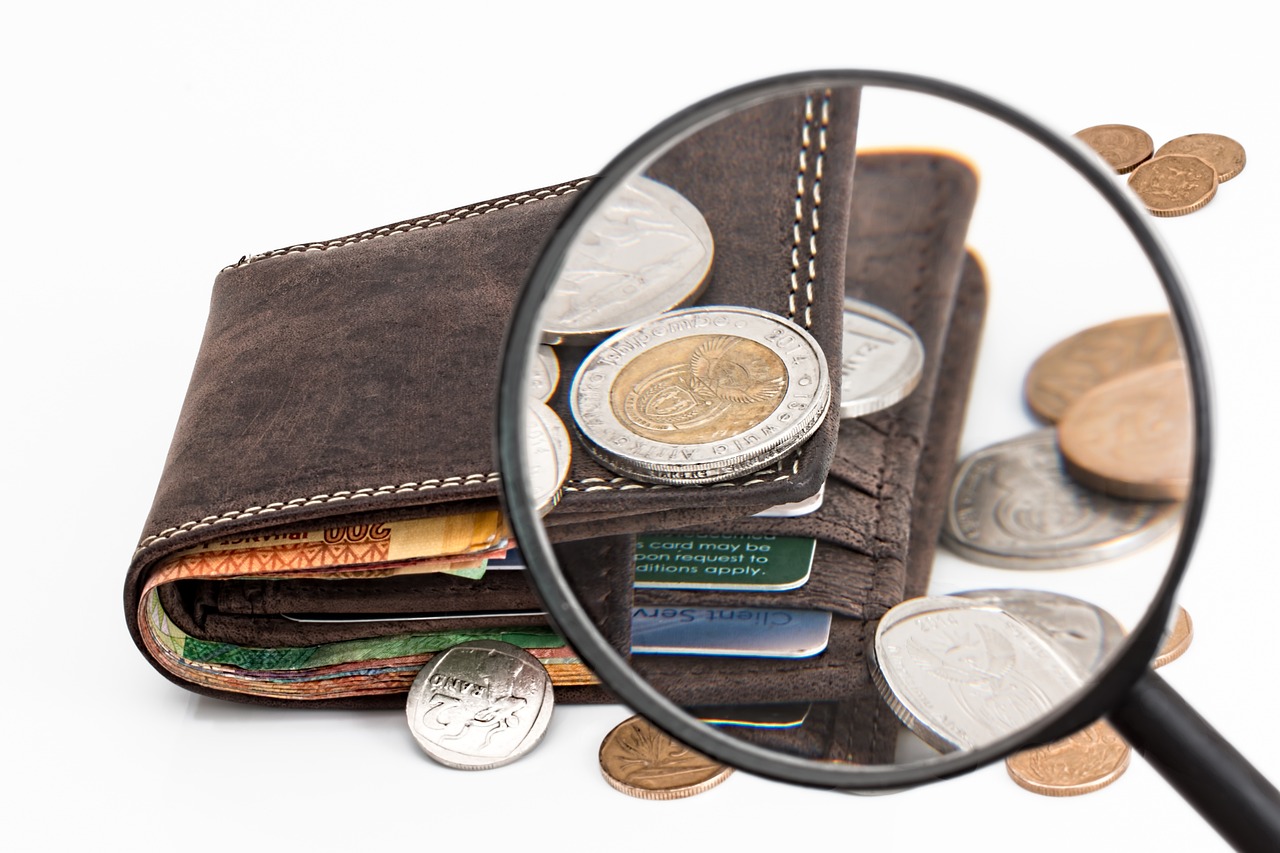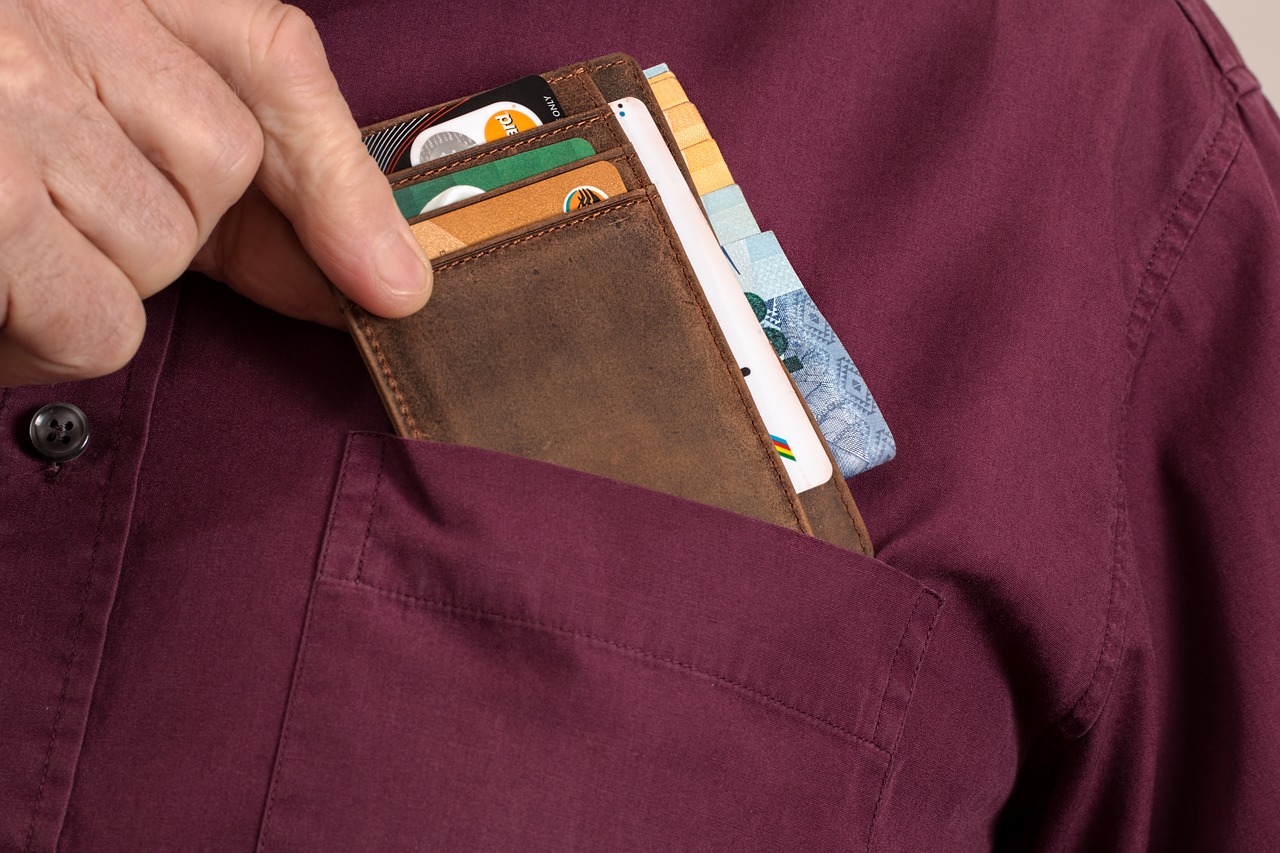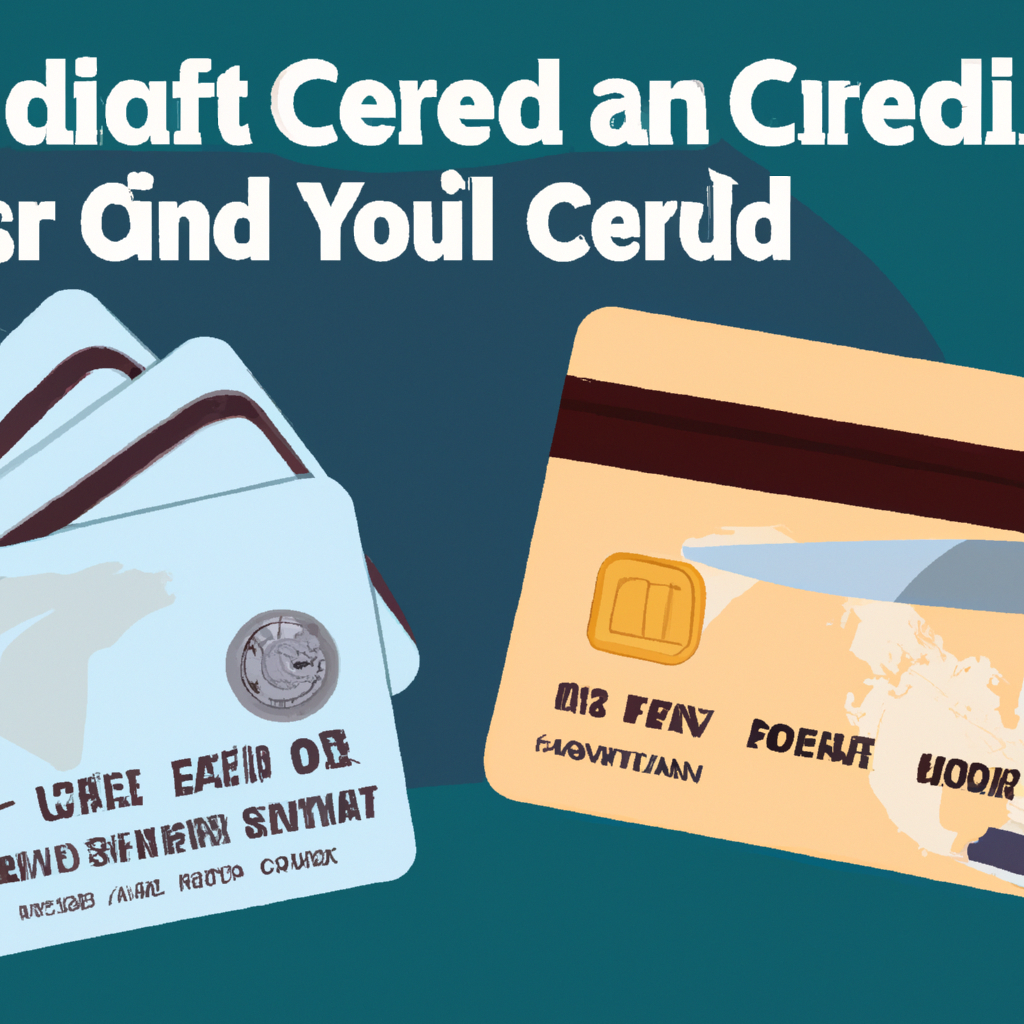If you’re trying to manage your finances and create a solid budget, you might have wondered whether using credit cards is a good idea. It’s a common concern, and it’s understandable! In this article, we will explore the pros and cons of using credit cards when budgeting, helping you make an informed decision about whether or not to include them in your financial strategy. By understanding the potential benefits and drawbacks, you can determine if credit cards are a helpful tool or a hindrance to achieving your budgeting goals.

Benefits of using credit cards in budgeting
Earn rewards and cash back
Using credit cards for your budgeting needs can offer you the opportunity to earn rewards and cash back on your purchases. Many credit card issuers have reward programs that allow you to accumulate points, miles, or cash back for every dollar you spend. These rewards can then be redeemed for a wide range of options, such as travel discounts, gift cards, or statement credits.
By strategically using your credit cards, you can maximize the benefits and enjoy perks that can enhance your budgeting efforts. For example, if you frequently make purchases at certain retailers, you can choose a credit card that offers higher rewards for those specific merchants. This way, you can earn additional benefits for shopping at places you would already spend money.
Build credit history
Another significant benefit of using credit cards in your budgeting strategy is the ability to build and establish a positive credit history. Credit cards provide an opportunity to demonstrate consistent and responsible borrowing behavior, which is crucial for building a strong credit profile.
By making timely payments and keeping your credit utilization low (using only a small fraction of your available credit), you can positively impact your credit score. A good credit score is essential when it comes to obtaining favorable interest rates on loans, mortgages, and even some job applications. Using credit cards responsibly can help you lay the foundation for a healthy financial future.
Convenience and security
Credit cards offer unparalleled convenience for budgeting purposes. With a credit card, you don’t need to carry around large amounts of cash or constantly worry about running out of money. You can make purchases and payments easily, whether in-store, online, or over the phone.
In addition to convenience, credit cards also provide an extra layer of security. Most issuers offer fraud protection, which means you won’t be held responsible for unauthorized charges. If you lose your credit card or it gets stolen, you can quickly report it and have a new one issued. This level of protection can provide peace of mind and safeguard your finances.
Protection against fraud
Credit cards offer an added advantage when it comes to protecting yourself from fraud. In the case of fraudulent transactions, credit cards typically provide stronger consumer protection compared to other payment methods, such as debit cards or cash.
Under the Fair Credit Billing Act, your liability for unauthorized charges on a credit card is limited to $50. However, most credit card issuers go a step further and offer zero liability policies, meaning you won’t be responsible for any fraudulent charges. This protection ensures that your budget is safeguarded against potential fraudulent activities, giving you a sense of security and peace of mind.
Drawbacks of using credit cards in budgeting
Overspending
One of the potential drawbacks of using credit cards in budgeting is the temptation to overspend. The ease and convenience of using credit cards can sometimes lead to impulsive purchases that may not align with your budget goals. It’s important to exercise self-control and discipline when using credit cards to ensure you stay within your budgeted limits.
To prevent overspending, it can be helpful to set a clear spending limit for each card and stick to it. It’s also beneficial to regularly track and review your credit card transactions to ensure you are staying on track with your budget.
Interest charges and fees
Another drawback of using credit cards is the potential for interest charges and fees. If you carry a balance on your credit card from month to month, you will be charged interest on the unpaid amount. This interest can accumulate over time and increase the overall cost of your purchases.
Additionally, credit cards may come with annual fees and other charges, such as late payment fees or balance transfer fees. These fees can eat into your budget and reduce the overall effectiveness of using credit cards for budgeting purposes.
To minimize interest charges and fees, it is crucial to pay off your credit card balances in full each month. By doing so, you can avoid accruing interest and ensure you are maximizing the benefits of using credit cards for budgeting.
Debt accumulation
One of the most significant drawbacks of using credit cards in budgeting is the potential for debt accumulation. If you consistently spend more than you can afford to repay, you may find yourself in a cycle of credit card debt.
It’s important to remember that using a credit card should not be seen as an extension of your income. Instead, it should be viewed as a tool to help you stay within your budget and manage your expenses effectively. By carefully planning your purchases and sticking to your budget, you can avoid falling into the trap of excessive credit card debt.
Lack of control over finances
Some individuals may struggle with using credit cards in their budgeting because it can lead to a lack of control over their finances. Without proper discipline and monitoring, it can be easy to lose track of your spending and end up with a distorted view of your financial situation.
To overcome this drawback, it’s important to establish a clear budget and regularly track your expenses. By diligently monitoring your credit card transactions and comparing them to your budget, you can maintain control over your finances and ensure that you are on track towards your financial goals.
Factors to consider when using credit cards in budgeting
Financial discipline
When using credit cards in budgeting, having strong financial discipline is crucial. It’s important to be conscious of your spending habits, avoid impulsive purchases, and stick to your predetermined budget. By exercising self-control and staying disciplined, you can effectively use credit cards as a tool for budgeting without falling into the trap of excessive debt.
Credit card terms and conditions
Before incorporating credit cards into your budgeting strategy, it’s essential to carefully review and understand the terms and conditions of each card. Pay attention to interest rates, annual fees, and any other charges that may apply. By choosing credit cards with favorable terms, you can optimize the benefits and minimize the potential drawbacks.
Budgeting techniques
When utilizing credit cards in budgeting, it’s helpful to employ various budgeting techniques to stay on track. Some popular budgeting methods include the zero-based budget, where every dollar is allocated towards a specific purpose, and the envelope system, where you divide cash into specific categories and spend only what’s in each envelope.
By combining these budgeting techniques with your credit card usage, you can create a comprehensive budgeting plan that suits your needs and helps you achieve your financial goals.
Alternative payment methods
While credit cards can be beneficial for budgeting, it’s important to consider alternative payment methods as well. Using a combination of credit cards, debit cards, and cash can provide a diversified approach to managing your expenses. Depending on the situation, certain payment methods may offer better benefits or fit more seamlessly into your budgeting plan.
How credit cards can support effective budgeting
Tracking expenses
One of the ways credit cards can support effective budgeting is through detailed tracking of expenses. Most credit card statements provide itemized lists of your purchases, allowing you to categorize and track your spending. This level of transparency can help you identify trends, control unnecessary expenses, and make more informed decisions when it comes to budgeting.
By using online banking platforms or mobile apps provided by your credit card issuer, you can easily access your transaction history and get a comprehensive overview of your spending habits. This way, you can stay on top of your budget and make adjustments as necessary.
Setting spending limits
Credit cards are an excellent tool for setting and controlling spending limits. You can establish specific credit limits for each card based on your budget, ensuring that you don’t exceed your predetermined spending thresholds.
By setting spending limits, you can avoid the temptation to overspend and make impulsive purchases. It also allows you to plan your expenses effectively and allocate funds to different categories within your budget.
Access to credit during emergencies
Credit cards can be an invaluable resource during unexpected financial emergencies. Whether it’s a medical expense, a vehicle repair, or a household emergency, having access to credit can provide peace of mind and ensure that you can address urgent issues promptly.
While it’s important to have an emergency fund in place, credit cards can serve as a backup option when immediate funds are needed. However, it’s crucial to ensure that any emergency spending is incorporated into your budget and paid off as quickly as possible to avoid accumulating unnecessary debt.
Organized and centralized payments
Using credit cards can simplify and centralize your payment process. Instead of juggling multiple payment due dates for various bills and expenses, you can consolidate them into a single monthly credit card payment.
This centralized payment system allows you to streamline your budgeting process and reduces the chances of missing payments or incurring late fees. By automating your credit card payments or setting up reminders, you can ensure that your bills are paid on time and keep your budget on track.

Tips for using credit cards wisely in budgeting
Create a realistic budget
Before incorporating credit cards into your budgeting strategy, it’s essential to create a realistic budget. Assess your income, expenses, and financial goals to determine how much you can comfortably allocate towards credit card payments. Be honest with yourself and avoid setting overly optimistic expectations that may lead to unnecessary debt.
By having a clear understanding of your financial situation and setting realistic budgeting goals, you can align your credit card usage with your overall budget and avoid any financial hardships.
Pay off balances in full each month
To maximize the benefits and minimize the drawbacks of using credit cards in budgeting, it’s crucial to pay off your credit card balances in full each month. By doing so, you can avoid interest charges and ensure that you are not carrying any unnecessary debt.
If paying off your balances in full is not feasible, try to make more than the minimum payment. This will help you reduce your outstanding balance and save on interest charges over time. By prioritizing debt repayment as part of your budget, you can steadily eliminate any credit card debt and achieve your financial goals.
Monitor credit card statements regularly
Regularly monitoring your credit card statements is an important habit to develop when using credit cards in your budgeting strategy. By reviewing your statements regularly, you can catch any errors or fraudulent charges promptly.
Additionally, actively monitoring your credit card transactions allows you to track your spending and ensure that you are staying within your predetermined budget. It’s helpful to reconcile your credit card statements with your budgeting plan each month to identify any discrepancies and make necessary adjustments.
Avoid unnecessary fees
To make the most of your credit card usage in budgeting, it’s essential to avoid unnecessary fees. Read the fine print and familiarize yourself with the terms and conditions of each credit card you use. Pay attention to annual fees, balance transfer fees, and late payment fees, among others.
By understanding the potential fees associated with your credit cards, you can make informed choices and select cards that offer favorable terms. Additionally, by paying your credit card bills on time and in full each month, you can avoid late payment fees and maintain a positive financial track record.
Common misconceptions about credit cards and budgeting
Credit cards always lead to debt
A common misconception about credit cards is that using them will inevitably lead to debt. While it’s true that credit cards can contribute to debt if used irresponsibly, they can also be effectively used as a budgeting tool.
By using credit cards judiciously and paying off balances in full each month, you can leverage the benefits without accumulating debt. It’s important to understand that credit cards are not inherently bad but rather the misuse or lack of discipline when using them can lead to financial difficulties.
Budgeting is only possible without credit cards
Another misconception is that budgeting can only be successful without the use of credit cards. While some individuals may find it easier to budget with cash or alternative payment methods, credit cards can offer several advantages when used correctly.
Credit cards provide a convenient way to track expenses, set spending limits, and establish credit history. By leveraging the benefits of credit cards alongside other budgeting techniques, you can create an effective budgeting strategy that suits your financial goals and preferences.
Closing credit card accounts improves budgeting
Closing credit card accounts is often seen as a solution to budgeting challenges. However, it is important to consider the impact of closing credit card accounts on your credit history and credit utilization ratio.
Closing credit card accounts can potentially shorten your credit history and decrease your available credit, both of which can affect your credit score. Additionally, if you have outstanding balances on the credit cards you close, it can negatively impact your credit utilization ratio – the percentage of your available credit that you are using.
Instead of closing credit card accounts, it may be wiser to manage your credit card usage responsibly and be mindful of your budgeting goals. By keeping your credit card accounts open, you can maintain a healthy credit history and utilize the benefits that credit cards offer.

Alternate strategies for budgeting without credit cards
Cash-based budgeting
One alternative strategy for budgeting without credit cards is cash-based budgeting. This method involves withdrawing cash for specific spending categories and using envelopes or designated physical compartments to store the cash. Each envelope represents a different budget category, such as groceries, entertainment, or transportation.
Cash-based budgeting provides a tangible and visual representation of your spending. By physically dividing your money into different envelopes, you can easily track how much you have allocated to each category and visually see your progress throughout the month. This method can be particularly helpful for individuals who find it easier to manage their spending when they have a physical reminder of their budget.
Envelope system
The envelope system is a variation of cash-based budgeting that involves using actual envelopes to organize and allocate funds. Each envelope represents a specific budget category, and you allocate a predetermined amount of money into each envelope at the beginning of the month.
As you make purchases within each category, you take money out of the corresponding envelope. Once an envelope is empty, you know you have reached your spending limit for that category. The envelope system provides a clear and tangible way of tracking your expenses and staying within your budget.
Debit cards
Another alternative to credit cards for budgeting is using debit cards. Debit cards allow you to spend directly from your checking account, so you are only using the money you already have. This can help you avoid accruing debt and overspending beyond your means.
Debit cards offer the convenience and security of electronic payments without the risk of accumulating credit card debt. By linking your debit card to your budgeting plan, you can ensure that your expenses are aligned with your budget goals.
Automated transfers
Automated transfers are a budgeting strategy that involves setting up recurring transfers from your income account to separate savings or expense accounts. This method allows you to automate your savings and allocate funds to specific budget categories without the need for credit cards.
By automating transfers, you can ensure that a portion of your income goes directly towards savings, bills, or specific budgeting goals. This method simplifies the budgeting process and reduces the chances of overspending or neglecting important financial obligations.
Factors to evaluate when deciding whether to use credit cards in budgeting
Financial goals
When deciding whether to use credit cards in your budgeting strategy, it’s crucial to align them with your financial goals. Consider what you want to achieve financially and evaluate how credit cards can help you reach those goals. Whether it’s building credit history, earning rewards, or managing expenses efficiently, ensure that credit card usage aligns with your overall objectives.
Income stability
The stability of your income is another factor to consider when incorporating credit cards into your budgeting plan. If you have a stable and predictable income, it may be easier to plan and budget for credit card payments. However, if your income fluctuates or is less predictable, it’s important to be cautious and carefully evaluate how credit cards fit into your budget.
Credit card usage patterns
Take a close look at your past credit card usage patterns and assess whether they have been conducive to effective budgeting. If you have a history of overspending or accruing credit card debt, it’s crucial to address these issues before incorporating credit cards into your budgeting strategy.
Understanding your spending habits and learning from past mistakes can help you make informed decisions about how to best use credit cards as a budgeting tool.
Risk tolerance
Evaluate your risk tolerance when considering credit card usage in budgeting. Every individual’s financial situation and risk tolerance are unique. Some individuals may prefer to avoid credit cards altogether to minimize the risk of debt accumulation, while others may feel comfortable using credit cards as long as they adhere to strict budgeting principles.
Take your risk tolerance into account and weigh it against the potential benefits and drawbacks of using credit cards in your budgeting efforts.

Case studies: Successful budgeting with credit cards
Paying off credit card debt and achieving financial goals
Sarah was burdened with significant credit card debt and struggled to make progress in achieving her financial goals. However, instead of avoiding credit cards altogether, she decided to incorporate them into her budgeting strategy.
Sarah created a realistic budget and set a specific amount aside each month to tackle her credit card debt. She identified the credit cards with the highest interest rates and made a plan to pay them off first. By diligently sticking to her budget and using credit cards responsibly, Sarah was able to pay off her credit card debt within a couple of years.
With her credit card debt under control, Sarah was also able to focus on other financial goals, such as saving for a down payment on a house and building an emergency fund. Through effective budgeting and responsible credit card usage, Sarah successfully transformed her financial situation.
Building credit history while staying within budget
John had recently graduated from college and wanted to start building his credit history. He decided to use credit cards as a tool to achieve this goal while staying within his budget.
John applied for a credit card with a low credit limit and used it for small, regular purchases like groceries and gas. He made sure to pay off the balance in full each month to avoid accruing any interest charges. By doing so, John demonstrated responsible borrowing behavior and established a positive credit history.
Over time, John’s credit score improved, and he was able to qualify for better credit card offers and other favorable financial opportunities. By using credit cards wisely and sticking to his budget, John successfully built a strong credit profile while avoiding any unnecessary debt.
Using credit card rewards to supplement income
Emma, a frequent traveler, used credit cards as a way to supplement her income and make the most of her spending. She selected credit cards that offered travel rewards for every dollar she spent and strategically used them for her everyday expenses.
Emma accumulated a significant number of rewards points over time, which she used to book flights and hotels for her vacations. By leveraging the credit card rewards, Emma was able to save hundreds of dollars on her travel expenses, effectively reducing her overall budget.
In addition to travel rewards, Emma also earned cash-back rewards on her credit cards. She used the cash-back to supplement her income and offset some of her everyday expenses, further stretching her budget.
Through a combination of careful spending, budgeting, and strategic use of credit card rewards, Emma was able to enhance her financial position and enjoy additional benefits from her everyday purchases.
Conclusion
In summary, credit cards can be valuable tools in budgeting when used wisely and responsibly. They offer benefits such as earning rewards, building credit history, convenience, and security. However, it’s important to be mindful of the potential drawbacks, including overspending, interest charges, debt accumulation, and lack of financial control.
When considering credit cards in your budgeting strategy, it’s crucial to evaluate factors like financial discipline, credit card terms and conditions, budgeting techniques, and alternative payment methods. By using credit cards effectively, you can track expenses, set spending limits, access credit during emergencies, and centralize your payments.
To use credit cards wisely in budgeting, it’s recommended to create a realistic budget, pay off balances in full each month, monitor credit card statements regularly, and avoid unnecessary fees. Additionally, it’s important to dispel common misconceptions about credit cards and explore alternate budgeting strategies such as cash-based budgeting, the envelope system, debit cards, and automated transfers.
When deciding whether to use credit cards in budgeting, assess your financial goals, income stability, credit card usage patterns, and risk tolerance. Through case studies, we see how credit cards can be successfully used to pay off debt, build credit history, and supplement income.
Ultimately, the key to effective budgeting with credit cards lies in discipline, planning, and a clear understanding of your financial situation. By leveraging their benefits and managing them responsibly, you can use credit cards as valuable tools in achieving your budgeting goals and maintaining control over your finances.






